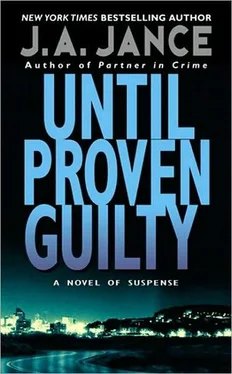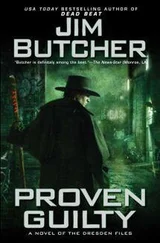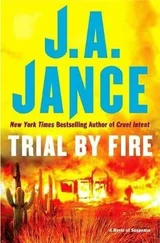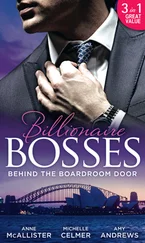J. Jance - Until Proven Guilty
Здесь есть возможность читать онлайн «J. Jance - Until Proven Guilty» весь текст электронной книги совершенно бесплатно (целиком полную версию без сокращений). В некоторых случаях можно слушать аудио, скачать через торрент в формате fb2 и присутствует краткое содержание. Жанр: Детектив, на английском языке. Описание произведения, (предисловие) а так же отзывы посетителей доступны на портале библиотеки ЛибКат.
- Название:Until Proven Guilty
- Автор:
- Жанр:
- Год:неизвестен
- ISBN:нет данных
- Рейтинг книги:4 / 5. Голосов: 1
-
Избранное:Добавить в избранное
- Отзывы:
-
Ваша оценка:
- 80
- 1
- 2
- 3
- 4
- 5
Until Proven Guilty: краткое содержание, описание и аннотация
Предлагаем к чтению аннотацию, описание, краткое содержание или предисловие (зависит от того, что написал сам автор книги «Until Proven Guilty»). Если вы не нашли необходимую информацию о книге — напишите в комментариях, мы постараемся отыскать её.
Until Proven Guilty — читать онлайн бесплатно полную книгу (весь текст) целиком
Ниже представлен текст книги, разбитый по страницам. Система сохранения места последней прочитанной страницы, позволяет с удобством читать онлайн бесплатно книгу «Until Proven Guilty», без необходимости каждый раз заново искать на чём Вы остановились. Поставьте закладку, и сможете в любой момент перейти на страницу, на которой закончили чтение.
Интервал:
Закладка:
I stopped. “You’re not my type.”
“Bugging, you jerk, not buggering. As in wiretapping, eavesdropping, Watergate.”
“Oh,” I replied. “As a matter of fact, I haven’t done any of that either.”
Peters favored me with the first genuine grin I could remember, the ear-to-ear variety. We got in the car and he turned up Fourth Avenue, the opposite direction from the Public Safety Building.
“Just where in the hell are we going?” I asked.
“Kirkland. I’ve got some equipment at the house we’ll need to use.”
“I take it this is going to be an illegal wiretap as opposed to the court-ordered variety?”
“You catch on fast, Beaumont.”
“And you know how to work this illegal equipment?” I asked.
Peters’ response was prefaced by a wry face. “How do you think I got the goods on my own wife’s missionary?”
“And where do you propose to install this device?”
“I think I can make it fit right under the pulpit itself.”
“How long is the tape?”
“Long enough. It’s sound activated, so if nothing’s going on, it shuts off. It’ll get us just what we want.” Peters’ face was a picture of self-satisfaction.
It sounded like Peters knew what he was doing, but I decided to do a reality exercise, play devil’s advocate. “Of course you realize that nothing we get will be admissible in a court of law?”
“Absolutely,” he responded, “but it may tell us where to go looking for solid information.”
“As in where the bodies are buried.” That’s what I said aloud. I was thinking about Angel Barstogi and a man left dead in a Hammond, Indiana, alley. It seemed to me that God wouldn’t frown on our using a little ingenuity to even the score. God helps those who help themselves. Besides, there was a certain perverse justice in the idea of dredging the truth out of Pastor Michael Brodie’s very own sermon. Somehow that seemed fair.
Chapter 10
In the final analysis, we weren’t able to get it under the pulpit, but we got close enough. Suzanne Barstogi was still in the Penitent’s Room when we returned from Kirkland with Peter’s tiny sound-activated tape recorder. By this time her knees must have worn out. She was lying prostrate on the floor, sound asleep.
We were alone in the sanctuary. Peters sat down casually on a front bench and attached the recorder under the seat. He handled the equipment with well-practiced competency. As soon as it was concealed, I went past the sleeping Suzanne and knocked on the door to Brodie’s study. We had agreed to beard the lion in his den. We wanted to turn up the heat on Pastor Michael Brodie. We could at least give his self-confidence a good shake.
“What are you doing back here?” he demanded in a voice that caused Suzanne to stir and struggle once more to her knees. He looked around, presumably for Carstogi. “What do you want?”
“We want to ask you a few questions about your whereabouts on Thursday morning.”
Brodie’s florid face twisted. “Are you accusing me…” He broke off abruptly. “I was here, at the church, in my study. Are you listening to that heathen’s accusations?”
“You mean Carstogi? No, we’re just doing our job. Did anyone see you?” I prodded.
“I told you I was here by myself. Nobody saw me. Almighty God is my witness.”
“Have you ever been in Hammond, Indiana?” The tone of Peters’ question was deceptively mild. He leaned casually, almost insolently, against the entrance to the Penitent’s Room.
Brodie’s red face went suddenly slack and ashen. He recovered quickly. “What does that have to do with this?”
“Oh, nothing,” Peters said. “I was just wondering.”
“I know what you’re trying to do. Andrew is making trouble. He is a man with a burden of vengeance in his heart. He blames me for his fall from grace. You tell him from me that Jehovah sees into his vile soul. He will rot in hell for his unjust accusations.”
“So you claim you were here all Thursday morning, or at least until Suzanne Barstogi called you? Is that right?” I continued.
“That’s what I said. Twice.” His fists were tight and so was his voice. He was losing control.
“Why did you change her name? Are the others using different names too?”
I could tell that Peters’ roundabout questions were having the desired effect. Brodie’s eyes shifted uneasily back and forth between Peters and me as if he were watching an invisible tennis ball. We were developing into a team. I liked Peters’ way of approaching issues in an off-the-wall manner.
“We’re starting new lives with new names,” Brodie explained.
“And new wives,” Peters added. “What about your name? Did you change yours too, or only the names of your followers?”
“I want you out of here,” Brodie ordered. His voice dropped to an ominous whisper. “I want you out of here now!”
Peters uncrossed his legs and stretched. There was no sense of urgency in his movements. He stepped around Suzanne and approached the open Bible, running his finger down the page. “It might be worth your while to go looking for someone who can remember your being here on Thursday morning. Maybe there was a cleaning woman around or a neighbor who saw you.”
“Are you threatening me?”
Peters shook his head. “You can call it that if you like. I call it a friendly suggestion.”
With that Peters ambled out of the room. I followed, wishing Peters’ little recording device had a remote listening capability, because I was sure all hell was going to break loose the moment we were out of earshot.
We made it into the office by one forty-five and found stacks of messages. Tom Stahl had called again. I had left the phone bill payment envelope with the outgoing mail before I left the Royal Crest that morning. I resented his calling me at the office about it, but then, I never was available at home during business hours. I gave the yellow message sheet a toss.
There was a call from Maxwell Cole. I wadded that one up and threw it in the trash along with the first one. Cole had more nerve than a bad tooth to call me for anything. Detectives don’t speak to the press. That dubious privilege belongs to the supervisors.
Captain Powell and Sergeant Watkins wanted to talk to Peters or me. We drew straws. Peters lost and took off for Powell’s fishbowl. There was one more message, one that intrigued me. It was from a woman who said she would call back around two. There was no name on the message, nor was there a number I could call.
I looked at the clock, drummed my fingers on my desk, then reached for the phone. I had made a mental note of the number on the slip of paper in Anne Corley’s back window. I called Motor Vehicles and asked them to get me some information on the Porsche.
Two o’clock was just around the corner. I hauled out a form and started working on a report. I can deal with the creeps. It’s the bureaucratic garbage I can’t stand. I dictated a brief summary of our activities for the day and put Michael Brodie’s and Benjamin Mason/Clinton Jason’s names into the FBI hopper. There was an off chance they had a record somewhere, maybe even an outstanding warrant or two. I phoned Hammond, Indiana, to see if Brodie was still under active investigation in the case Carstogi had mentioned.
My phone did not ring at two o’clock. At two-fifteen, though, I looked up to find Anne Corley being led to my desk by Arlo Hamilton, the public information officer, who was grinning like a Cheshire cat. Look what I found, his face seemed to say. Visitors on the fifth floor are kept to a minimum. I think Anne Corley’s looks had a whole lot to do with the visitor’s badge that was clipped on her jacket. Heads turned in her wake. If there was a grin on Hamilton’s face, I’m sure mine mirrored it. No way could I disguise the pleasure and surprise I felt at seeing her again.
Читать дальшеИнтервал:
Закладка:
Похожие книги на «Until Proven Guilty»
Представляем Вашему вниманию похожие книги на «Until Proven Guilty» списком для выбора. Мы отобрали схожую по названию и смыслу литературу в надежде предоставить читателям больше вариантов отыскать новые, интересные, ещё непрочитанные произведения.
Обсуждение, отзывы о книге «Until Proven Guilty» и просто собственные мнения читателей. Оставьте ваши комментарии, напишите, что Вы думаете о произведении, его смысле или главных героях. Укажите что конкретно понравилось, а что нет, и почему Вы так считаете.












